Tag: government documents
Resource: UK Government Web Archive
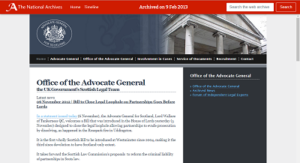 A collaboration between the National Archives and Gov.uk, the UK Government Web Archive gathers every publicly available website hosted by the British government since 1996. The contents are browsable and searchable and include Twitter posts, YouTube videos, and over a billion documents.
A collaboration between the National Archives and Gov.uk, the UK Government Web Archive gathers every publicly available website hosted by the British government since 1996. The contents are browsable and searchable and include Twitter posts, YouTube videos, and over a billion documents.
Primary Sources: Records of the US Department of State for Panama & Brazil
 The Library has recently acquired online access to these government documents:
The Library has recently acquired online access to these government documents:
Panama: Records of the U.S. Department of State, 1950-1963
Documents in this collection trace U.S.-Panamanian relations during the Truman, Eisenhower, and Kennedy administrations. Issues relating to shipping and the significance of the Panama Canal during the Cold War include: “Panama Stymies Use of Her Flag in Vietminh Trade … A parallel situation exists in the trade with Red China” (September 1955); and “Ships Enroute to U.S. from Soviet or Satellite Ports” (October 1957). A letter to U.S. Ambassador Julian F. Harrington details “the possibility that the Conference on the Law of the Sea in 1960 would result in a general acceptance by the United States of a six-mile breadth of territorial sea” (April 1960). Other documents chart day-to-day aspects of the economy: a report on sugar production with tables on sugar production and consumption (June 1950); and an announcement by the Panamá Canal Company of a contract award for native lumber (August 1952).
Brazil: Records of the U.S. Department of State, 1960-1963
This archive focuses on Brazil in the early 1960s. Sample documents include a report from Recife on the cultivation and export of pineapples, “especially in the states of Pernambuco and Paraíba,” as “an increasing source of foreign exchange for the Northeast.” A November 1962 memorandum details the issuance of 40 billion cruzeiros in new currency “to meet runs on commercial banks during the political crisis, gradually flowing back to the Bank of Brazil following the return of normal conditions.” The collection covers the period following the resignation from the presidency of Janio Quadros in 1961 and the succession of Vice President Joao Goulart, whose years in office were marked by high inflation, economic stagnation, and the increasing influence of radical political elements. The armed forces, alarmed by these developments, staged a coup on March 31, 1964, during the administration of U.S. President Lyndon B. Johnson.
Primary Sources: State Papers Online – Foreign

The Library has acquired the Foreign State Papers of early British Monarchs.
State Papers Online Part II: The Tudors, 1509-1603: State Papers Foreign, Scotland, Borders, Ireland and Registers of the Privy Council
“Documents Tudor England’s relations with its neighbours, both near and distant including those it sought to control (Scotland, Ireland and Wales), those it fought wars or maintained peace with in Europe (the Holy Roman Empire, Spain, France) and those it traded with (the Ottoman Empire, the Barbary coast and Russia.)”
State Papers Online Part IV: The Stuarts and the Commonwealth, James I – Anne I, 1603-1714: State Papers Foreign, Ireland and Registers of the Privy Council
“Part IV completes the Papers of the Stuart period and contains volumes of State Papers from, to and about all the countries of Europe. Many of these countries have lost their own collections from this period increasing the rarity and value of these British State Papers. All the great international themes of the 17th century play out in document after document making them an essential resource for not only British but European History: marriage alliances, revolutions, wars and treaties, trade and commerce and, crucially, religion.”
These can be found along with the State Papers Domestic for these time periods, at State Papers Online.
Primary Sources: British Labour Party papers, 1906-1969
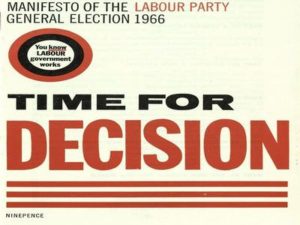 The Library has acquired British Labour Party papers, 1906-1969, a module on the British Online Archives platform.
The Library has acquired British Labour Party papers, 1906-1969, a module on the British Online Archives platform.
These papers cover the foundation of the Parliamentary Labour Party in 1906, then “follow the Party through Ramsay MacDonald’s Governments, two world wars, the first Harold Wilson Government and the early part of his second Government. The events in these records are a reflection of current events as much as of the Party itself. From the suffrage campaign for the electoral enfranchisement of women, to nuclear tests over the Pacific Ocean, through the Beveridge Report, the Trade Union Bill and the development of the United Nations. Early policies like the minimum wage would not pass for decades and Party discipline would be a challenge for every Party Leader. Those challenges existed alongside the removal of the right for employers to sue trade unions and the creation of social services. These papers have been arranged by year and divided into thematic groups for ease of analysis.”
Primary Sources: Brazilian Government Documents digitized by CRL
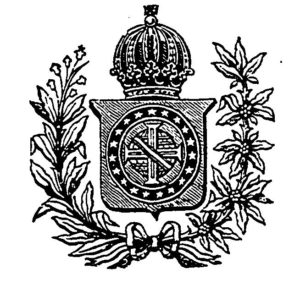 This is the first of a series of posts featuring digitized collections available through the Center for Research Libraries (CRL).
This is the first of a series of posts featuring digitized collections available through the Center for Research Libraries (CRL).
In 2000, CRL, working with the Biblioteca Nacional do Rio de Janeiro, completed digitizing over 670,000 Brazilian government documents selected because of their scarcity, importance, and volume. It is not possible to search these collections; access points are described below.
Provincial Presidential Reports (1830–1930)
These state-level messages, issued annually, summarize activities within each province. Access is by province and year, while subject access to selected quantitative information is provided through the Subject Guide to Statistics in the Presidential Reports of the Brazilian Provinces, 1830–89 compiled by Ann Hartness.
Presidential Messages (1889–93)
The President’s annual message has summarized executive branch activities since Brazil became a republic in 1889. These documents are accessible by year and, where available, by the message’s table of contents.
Almanak Laemmert (1844–89)
The Almanak, published annually, reported on the Brazilian Royal Court. It listed officials of the Court and its Ministries. Also included were sections on provincial officials for Rio de Janeiro and a supplement including a variety of information such as legislation, census data, and commerical advertising.
Ministerial Reports (1821–1960)
Each federal ministry issues an annual report that recounts its activities. Access is by ministry, year, and table of contents (where available).
Primary Sources: Confidential Print: North America, 1824-1961
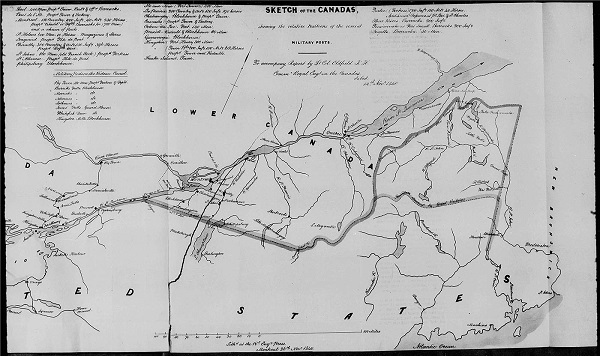
Beginning in the 1820s, the Confidential Print series was a selection of key correspondence, orders, policy documents, treaty texts, and memoranda from Great Britain’s Foreign Office and Colonial Office distributed internally to the Monarchy, Cabinet, members of Parliament, and within their organizations. Confidential Print: North America sheds light on controversies surrounding slavery, the treatment of Canadian indigenous peoples, uprisings against colonial rule, labor unrest in the United states, Nazi and fascist activities in Latin America, and much more. The record groups included in this series of Confidential Print are:
CO 880 War and Colonial Department and Colonial Office: Confidential Print North America, 1939-1914
CO 884 War and Colonial Department and Colonial Office: West Indies, Confidential Print 1826-1961
FO 414 Foreign Office: Confidential Print North America, 1824-1941
FO 461 Foreign Office: Confidential Print America, 1942-1956
FO 462 Foreign Office: Confidential Print United States of America, 1947-1956
More details about the contents of these record groups can be found in the Nature & Scope page of the site.
Primary Sources: Confidential U.S. State Department Central Files, 1960-1969, Africa and the Middle East

The Library has acquired the online resource Confidential U.S. State Department Central Files, 1960-1969, Africa and the Middle East, which includes U.S. State Department Central Files that have not been microfilmed by the National Archives or distributed by other publishers. It contains a wide range of sensitive materials from U.S. diplomats in foreign countries: reports on political, military, and socioeconomic matters; interviews and minutes of meetings with foreign government officials; important letters, instructions, and cables sent and received by U.S. diplomatic personnel; and reports and translations from foreign journals and newspapers.
The Africa files cover the brutal civil war between Biafra and Nigeria in the late 1960s, the 1964 Rivonia trial of Nelson Mandela and seven leaders of the African National Congress, violent protest against the South African government coupled with police crackdowns on the resistance, the troubled relationship between the U.S. and the apartheid regime, and the first years of independence in Ghana and the Congo. The files on Egypt offer considerable detail on the Egyptian political structure which was dominated by Gamal Abdel Nasser in the 1960s. Political issues are also covered in extensive detail in the files on Iran, Iraq, and Israel. Documents on Iran follow Ali Amin’s tenure as prime minister and his succession by Asadollah Alam. In Israel, State Department personnel tracked developments in the Knesset (Israeli Parliament), the political fortunes of important members of the Israeli government, and the fragile security situation faced by Israel. The countries covered in this module are: Biafra/Nigeria; Congo; Egypt; Ghana; South Africa; Iran; Iraq; Israel; Lebanon; Palestine; Saudi Arabia; the Persian Gulf States (Aden, Bahrein, Kuwait, Muscat & Oman, Qatar, Trucial Sheiks); and Yemen.
Primary Sources: FBI Confidential Files and Radical Politics in the U.S., 1945-1972
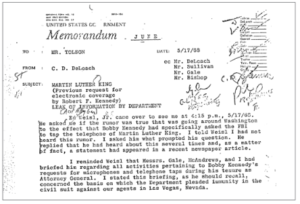 Another recent acquisition of the Library is the ProQuest History Vault module, FBI Confidential Files and Radical Politics in the U.S., 1945-1972. Under the leadership of J. Edgar Hoover, the FBI vigorously investigated and tracked the activities of Communist groups, Communist-front groups, and other radical organizations in the U.S. This module consists of records of the FBI and the Subversive Activities Control Board from 1945-1972.
Another recent acquisition of the Library is the ProQuest History Vault module, FBI Confidential Files and Radical Politics in the U.S., 1945-1972. Under the leadership of J. Edgar Hoover, the FBI vigorously investigated and tracked the activities of Communist groups, Communist-front groups, and other radical organizations in the U.S. This module consists of records of the FBI and the Subversive Activities Control Board from 1945-1972.
Highlights of this module include J. Edgar Hoover’s office files; documentation on the FBI’s so-called “black bag jobs,” as they were called before being renamed “surreptitious entries”; and the “Do Not File” File. The “Do Not File” file consists of records that were originally supposed to be destroyed on FBI Director J. Edgar Hoover’s order, however, through both intended and inadvertent exceptions to this order, large portions of these files survived. Another key collection in this module consists of the records of the Subversive Activities Control Board (SACB). The SACB files constitute one of the most valuable resources for the study of left-wing radicalism during the 1950s and 1960s.
Primary Sources: Foreign Office Files for the Middle East (updated)
The Library now has all three modules of the online resource Foreign Office Files for the Middle East, which include 1971-1974: The 1973 Arab-Israeli War and the Oil Crisis; 1975-1978: The Lebanese Civil War and the Camp David Accords; and 1979-1981: The Iranian Revolution and the Iran-Iraq War.
The content is sourced from the British Government records at the UK National Archives. The following Foreign and Commonwealth Office file classes are included in their entirety:
CO 935/1-25 Middle East General, 1920-1956
FO 402/1-33 Afghanistan, 1922-1957
FO 406/1-84 Eastern Affairs (Middle East), 1812-1946
FO 407/1-237 Egypt/Sudan, 1839-1958
FO 416/1-113 Persia, 1899-1957
FO 423/1-70 Suez Canal, 1859-1947
FO 424/1-297 Turkey, 1841-1957
FO 437/1-9 Jordan, 1949-1957
FO 464/1-12 Arabia, 1947-1957
FO 481/1-17 Iraq, 1947-1969
FO 484/1-11 Lebanon, 1947-1957
FO 487/1-11 Middle East General, 1947-1957
FO 492/1-11 Israel/Palestine, 1947-1957
FO 501/1-10 Syria, 1947-1956
Selections from the Prime Minister’s Office files (PREM) and Defence Intelligence files (DEFE) are also included.
Library presentation on Federal Documents on LGBT History – November 15
Please join us for a presentation titled “We’re Here, We’re Queer, and We’re in the Public Record: Federal Documents on LGBT History” by Jesse Silva, Librarian for Federal and State Government Information.
Tuesday, November 15
12 noon – 1:00pm
303 Doe Library
The United States government provides a wealth of primary sources that can be used to document our nation’s stance on many social movements. In this session Jesse will focus on selected documents pertaining to the LGBT movement. Beginning in the 1800’s, we can see instances of sodomy and crimes against nature. By the 1950 and 60’s we see witch hunts and hushed silence stemming from a fear of national security, along with glimmers of hope. From the 1970’s forward we begin to see evidence of a more tolerant government together with a variety of backlashes until we arrive at the present day of marriage equality and the White House lit up in rainbow colors for Pride. While our society may not be fully inclusive of LGBT people, our government is much more open than it was in the past.
Jesse Silva, MLIS, is the Librarian for Federal and State Government Information, Political Science, Public Policy and Legal Studies. He has chaired the Education and Legislation committees of the American Library Association’s Government Documents Round Table and has written several articles and book chapters on government information librarianship. Jesse has worked as a librarian at UC Berkeley, University of North Texas and UC Santa Cruz.
303 Doe is in the northwest corner of Doe Library. Take the stairs or elevators that lead to the Art History/Classics Library.
This is a brown bag so bring your own lunch. Cookies will be provided.